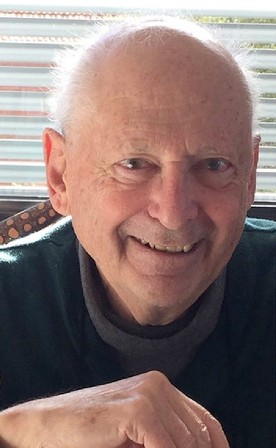
Beginnings
Reuben
was born in September 1932, in Melbourne.
Died
10 Nov 2019
Training and working as a GP in Cobargo
He attended Melbourne University from 1950 to 1955, when he graduated in
Medicine.
After a year at the Alfred Hospital as an intern, he spent a further
year at RCH before moving to Cobargo in NSW, where he stayed 3 years as an
isolated country GP, with an HMO appointment to Bega District Hospital.
Becoming a Paediatrician
He decided that Paediatrics would be his
vocation and was re-appointed to RCH as medical registrar for a year, mainly in
Dr Stanley Williams’ ward. He recalls the added bonus that a rostering quirk
had him as surgical registrar for a few weeks, with the opportunity of again
assisting Douglas Stephens, as well as seeing Reg Hooper (neurosurgeon) and
A.R.Wakefield (plastic surgeon) in action.
Following the fashion of the time, he
travelled to the UK with his family, and was lucky to obtain a Registrar
position at Birmingham Children’s Hospital with Professor Douglas Hubble.
After returning to Melbourne, he became a
Medical Registrar at the Alfred Hospital, and acquired the MRACP in 1964. He
set up in private consulting Paediatric practice, with attachments at Box Hill
and St Vincent’s hospitals. In 1968 he
moved to become a sessional Paediatrician in charge of the Alfred Hospital
children’s ward, a position he held until the ward was closed in 1992. He was
also part time in the Children’s Division at Queen Victoria Medical Centre from
1967 to 1986. While at various times QV Childrens Divisional Chairman and Dean
of Alfred Hospital Clinical School, he was involved formally as Monash Faculty
Liaison Officer in liaising with administrations of hospitals and University.
Student Education as an interest
His interest in student teaching provoked
him into undertaking a Diploma of Education, which he completed in 1979.
In 1992 he was appointed to the Board of
Examiners of the Australian Medical Council and remained involved in AMC
affairs until 2013.
In 1997 he was on the editorial panel of
the AMC’s first publication for overseas students “Annotated Multiple Choice
Questions”, Blackwell 1997. He contributed to the AMC “Handbook of Multiple
Choice Questions” 2009, and was on the editorial committee of “Anthology of
Medical Conditions”, AMC 2003.
A Computer Whiz?
Another interest was the way in which
doctors use information. This resulted
in an interest in computing, with a part-time sabbatical allowing a
collaboration with the obstetrician, Michael Humphrey, who was then collating
the data for reviewing obstetric performance at the old QV. In the late 1970s
they both agreed that data gathering was important They thought that doctors
would use a computer if they were shown that it saved work. A computer with 8 inch floppy discs was set
up in an annex to the labour ward.
Obstetric interns were required to enter the data previously entered
manually into a template when dictating a discharge summary. After entering the
data, interns were presented with a printed letter for the local doctor. Reuben presented their innovation “Summary of
Labour and Obstetric Audit by Microcomputer” at a World Conference on Medical
Informatics in Amsterdam in 1983. After
a year in which house staff were required to use the program, the Obstetric
staff required all accredited obstetricians to use it—including semi-retired
seniors who were afraid of the computer. That taught Reuben the importance of
the “man-machine interface”, a problem that persists today in software design.
Publications on medical training / education
Reuben attempted to simplify his lifelong
interest in the diagnostic process in a paperback book for starting medical
students, “Diagnosis: A Brief Introduction: Illustrated by Ron Tandberg”,
Oxford U. Press1996.
A chapter “The Diagnostic Process-History
taking and Problem solving” in “AMC Handbook of Clinical Assessment”, AMC 2007.
was largely a summary of his book.
In 2013, he welcomed news that Prof. M.
Graber, Founder and President of the Society to Improve Diagnosis in Medicine
was an invited keynote speaker, discussing clinical errors, at the RACP annual
conference. Reuben presented a poster paper “Teaching the Diagnostic Process”,
stressing his view that teaching the diagnostic process early in career
development might avoid some common clinical errors.
Later health issues
Reuben entered an international trial of a
new chemotherapeutic regime for treating pancreatic cancer after a Whipple
procedure in mid-2015. Follow-up CT in mid 2017 showed no abnormality.
Hobbies in retirement
He enjoyed photography, gardening and
great-grandchildren in his retirement.